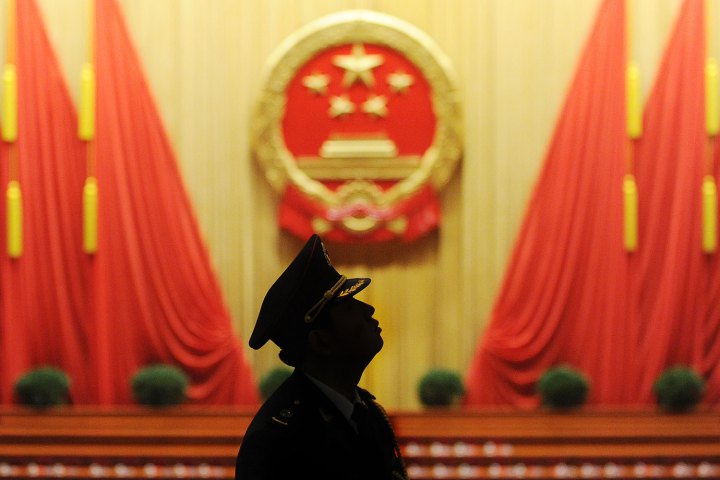At The China Story, Geremie Barmé highlights the apparent focus of Xi Jinping’s corruption crackdown on officials from humble backgrounds, rather than his own princeling comrades:
It is noteworthy that all forty-eight ‘Tigers’ 老虎, that is high-level corrupt officials, are reportedly from ‘commoner’ 平民 families. Indeed most are from peasant or similarly humble origins; none are easily identified as being members of what is known as the ‘Red Second Generation’ 红二代, that is, the children of the founding Communist Party fathers and mothers of the Yan’an era and early People’s Republic or, indeed, ‘Bureaucrat Second Generation’ 官二代, that is, the children of members of the first generation of representatives/ bureaucrats selected to join the inaugural convocations of the National People’s Congress or the National People’s Political Consultative Committee, both founded in 1954 (in the Mao era a high-level cadre was above Rank Thirteen in the Twenty-four Rank Cadre System 二十四级干部制).
It goes with saying that, in the murky corridors of Communist power, an impressive number of party gentry progeny, or the offspring of the Mao-era nomenclatura, have been implicated in corrupt practices, but word has it that, like the well-connected elites of other climes, they’ve enjoyed a ‘soft landing’: being discretely relocated, shunted into delicate retirement or quietly ‘redeployed’. It’s all very comfy; and it’s all very business as usual.
What has been extraordinary about the Xi-Wang anti-corruption purge is not so much its style or extent, but the fact that after nearly two years, members of the privileged families of the party-state have gone on the record to observe why they are above the grimy business of corruption. […] The following is a small sample of some recent observations on the anti-tiger corruption purge by some of the more outspoken members of China’s Red Gentry. [Source]
At The New York Times, meanwhile, Minxin Pei examines the nature and scale of corruption in China—organized into “pernicious” local webs spun around infrastructure development and privatization—and the strategy and risks of Xi’s campaign against it. Rather than a stratified side-effect of poor pedigree, Pei sees a pervasive form of “Crony Communism”:
[…] Mr. Xi’s campaign goes well beyond any immediate desire to establish his political supremacy. It is unprecedented in sweep and ambition, taking on the class of 5,000 or so very senior officials who operate the most vital organs of the C.C.P., the government, the military and state-owned enterprises. Its goal is no less than to upend the unspoken system by which China’s elites have been governing since the Tiananmen crackdown in 1989: a self-reinforcing web of relations based on patronage and corruption. As a leader driven by a historic mission to safeguard the C.C.P.’s rule against all odds, Mr. Xi sees endemic corruption as a serious threat to the regime’s long-term survival.
But corruption has penetrated so very deeply into the party-state that it has become the glue that holds it together. And so Mr. Xi’s campaign, which is meant to ensure the C.C.P.’s longevity, seems to pose an existential threat to it in the short or medium term. [Source]







